Kotaku Journalist Luke Plunkett Insinuates A Desire For Anti-Japanese Violence In Response To Nintendo Denying The Outlet A Review Copy Of ‘The Legend of Zelda: Tears of the Kingdom’
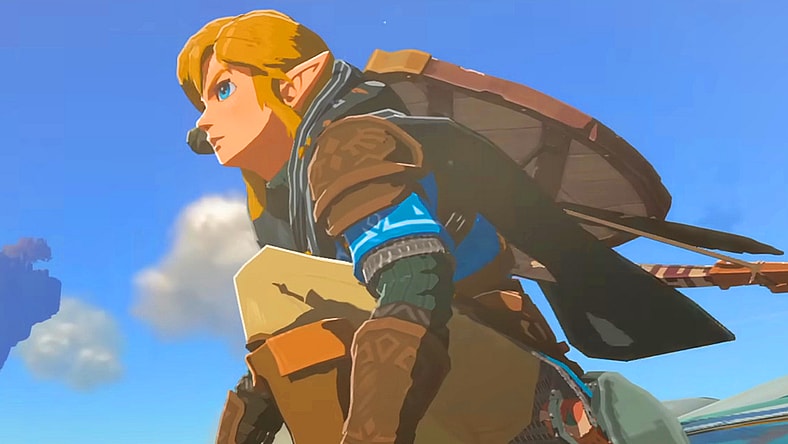
Further proving the already widely-held opinion that most mainstream video game journalists are no better than the strawmen they claim to fight against, Kotaku journalist Luke Plunkett recently responded to a round of discourse regarding the outlet’s blacklisting by Nintendo with an image that insinuated a desire for anti-Japanese violence.
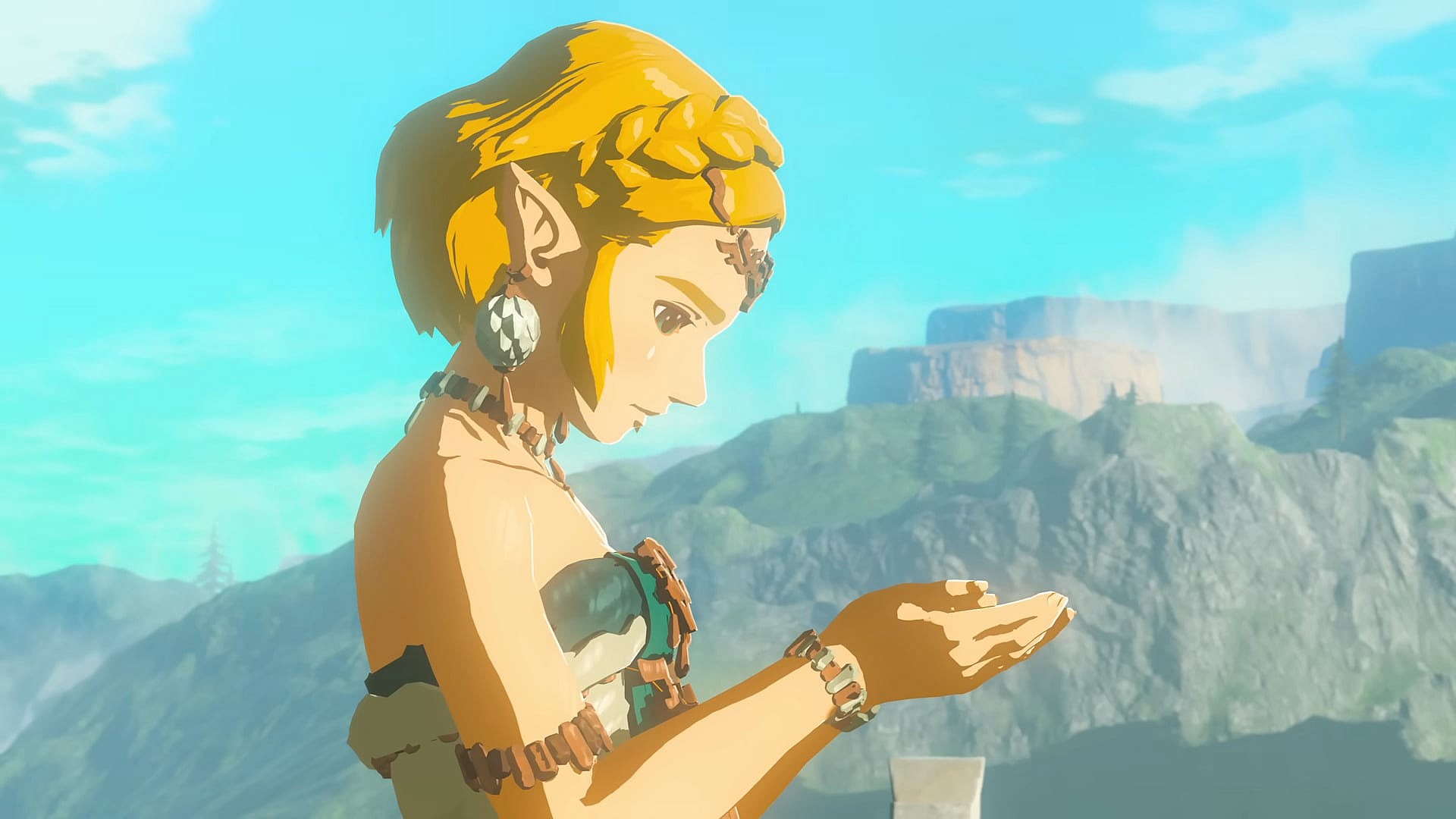
Kotaku’s latest episode of self-embarassment was first sparked on April 26th when staff writer Ethan Gach took to his personal Twitter account to bemoan the fact that the outlet was not provided a review copy of the highly-anticipated The Legend of Zelda: Tears of the Kingdom.
“It’s preview day for Zelda: Tears of the Kingdom, a huge game I would love for Kotaku to be able to inform its millions of readers about first-hand,” whined Gach. “Unfortunately Nintendo still has it blacklisted from advanced coverage, a move I would argue is both unprofessional and coercive.”
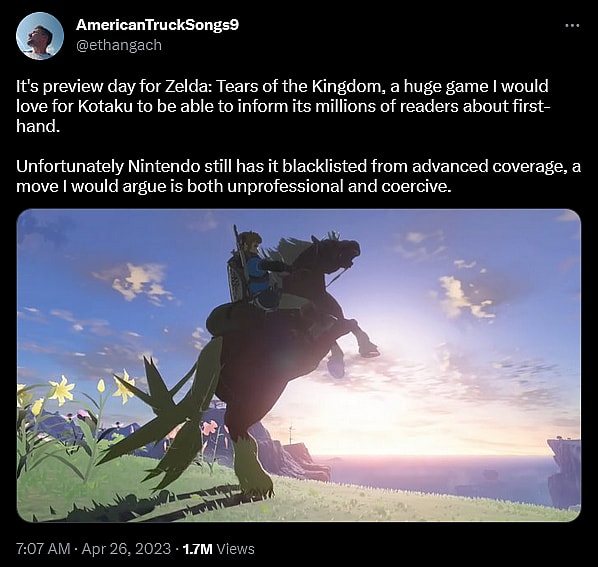
Yet, what Gach notably failed to mention in his attempt at righteous indignation is the fact that Kotaku’s blacklisting was nobody’s fault but their own.
While the exact cause of Nintendo’s disdain for Kotaku has yet to publicly detailed, a passing glance of their archives reveals that the outlet regularly – and more often than not extremely disingenuously – accuses any and all publishers of any number of sociopolitical transgressions.
In terms of Nintendo, with a history of such hits as ‘Super Smash Bros. Ultimate’s Persona 5 DLC Includes a Disability Slur‘ (an absolutely absurd accusation) and ‘Metroid Dread Is Already Running Great On Switch Emulators‘ (which was published the day after the game released), it’s not hard to see why the esteemed Japanese publisher would view working with Kotaku as ‘bad business.’
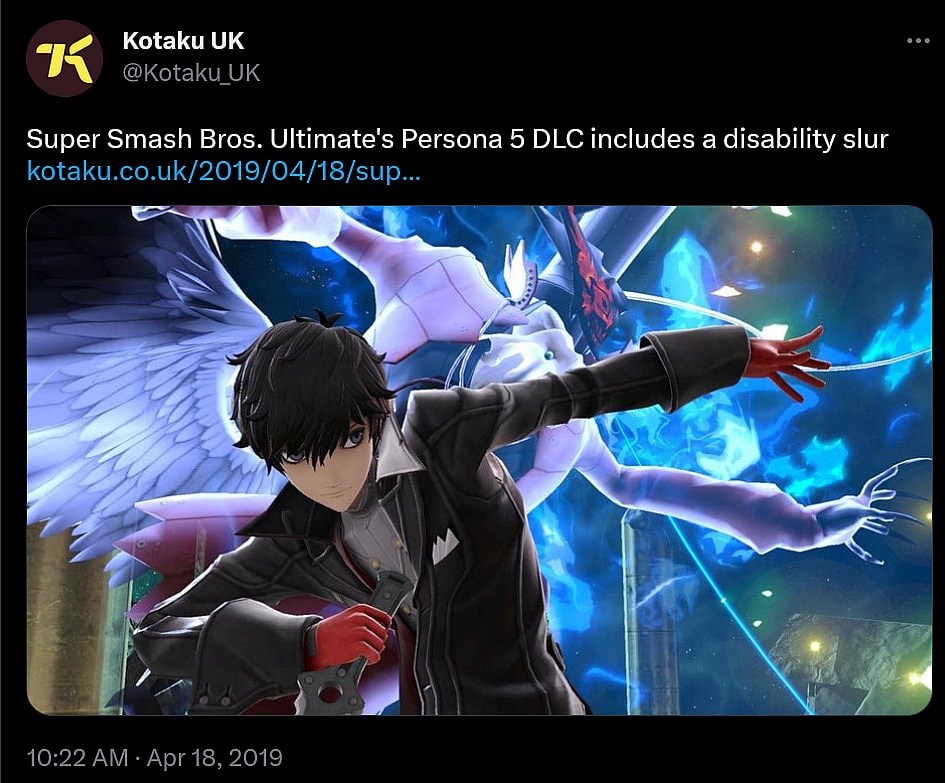
Shortly after he hit send, Gach’s whining would see him and the outlet as a whole inundated with criticism, most of which was focused on the outlet’s aforementioned lack of journalistic integrity and the fact that they were attempting to shift the blame for their blacklisting away from their own actions.
However, rather than engage in even a moment of self-reflection, Gach decided to add to Kotaku’s history of acting like petulant children by responding to the criticism by publishing a self-explanatory article detailing ‘Everything We’re Learning About Zelda: Tears Of The Kingdom From The Leaks‘ – a response that was soon met with a backlash all its own.
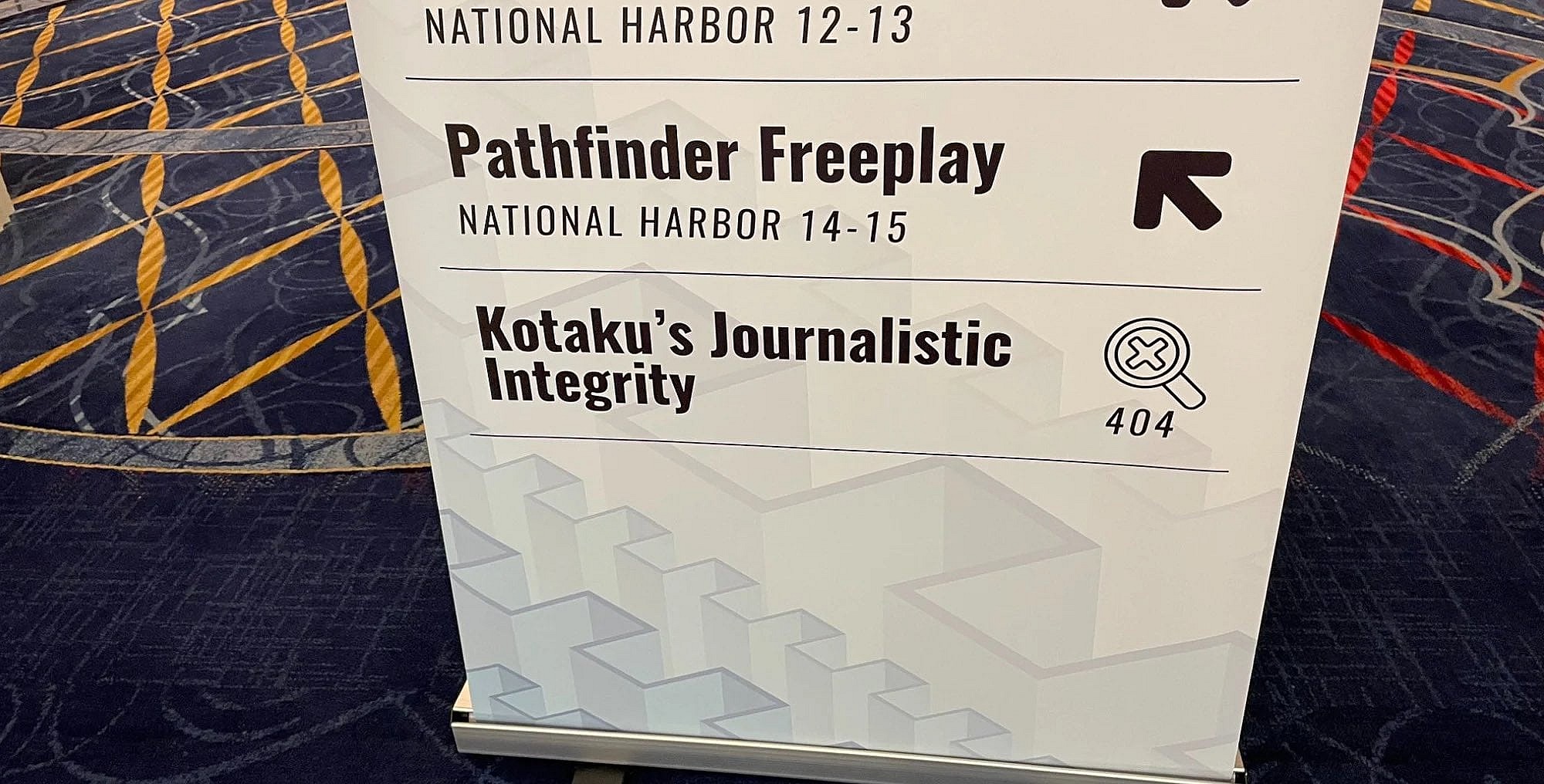
Enter Plunkett.
A senior editor for the outlet, Plunkett joined the conversation on May 3rd to defend his colleague.
Sharing a tweet by @GameSlushPile, who after seeing Gach’s petty leak coverage questioned, “You complain about Nintendo blacklisting you, then post spoilers based on leaks? Who is being unprofessional here?” and shared the official business email address for Nintendo of America’s legal division, Plunkett declared, “Very normal behaviour”.
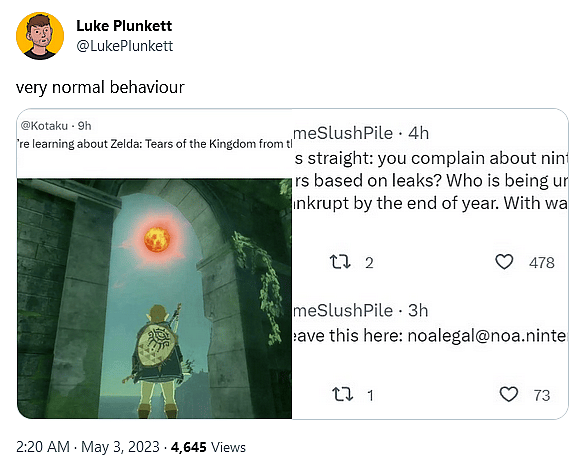
“I am years past CARING what these people say,” he added. “I am simply aghast at the fanatical fervour with which its thrown in 2023”.

Then allowing his mask to fully slip, Plunkett concluded his rant by highlighting a historic World War II-era photo of 356th Fighter Squadron commanding officer Lt. Col James H. Howard sitting in his P-51B-5 Mustang showing off his victory markings detailing his confirmed kills against both Nazi Germany and – more specifically – Imperial Japan.
“For the record,” he concluded, obviously posting it with aggressive intent. “this is how I feel about publisher blacklists.”
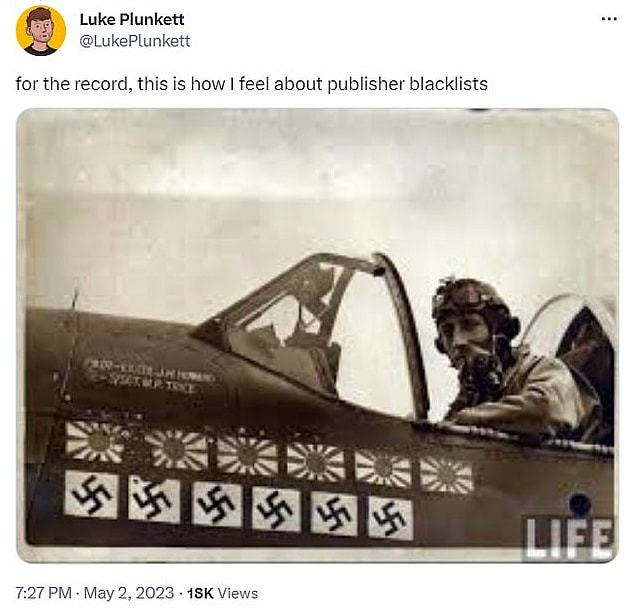
Players – and Kotaku employees – can get their copy of The Legend of Zelda: Tears of the Kingdom when it officially releases on May 12th.
